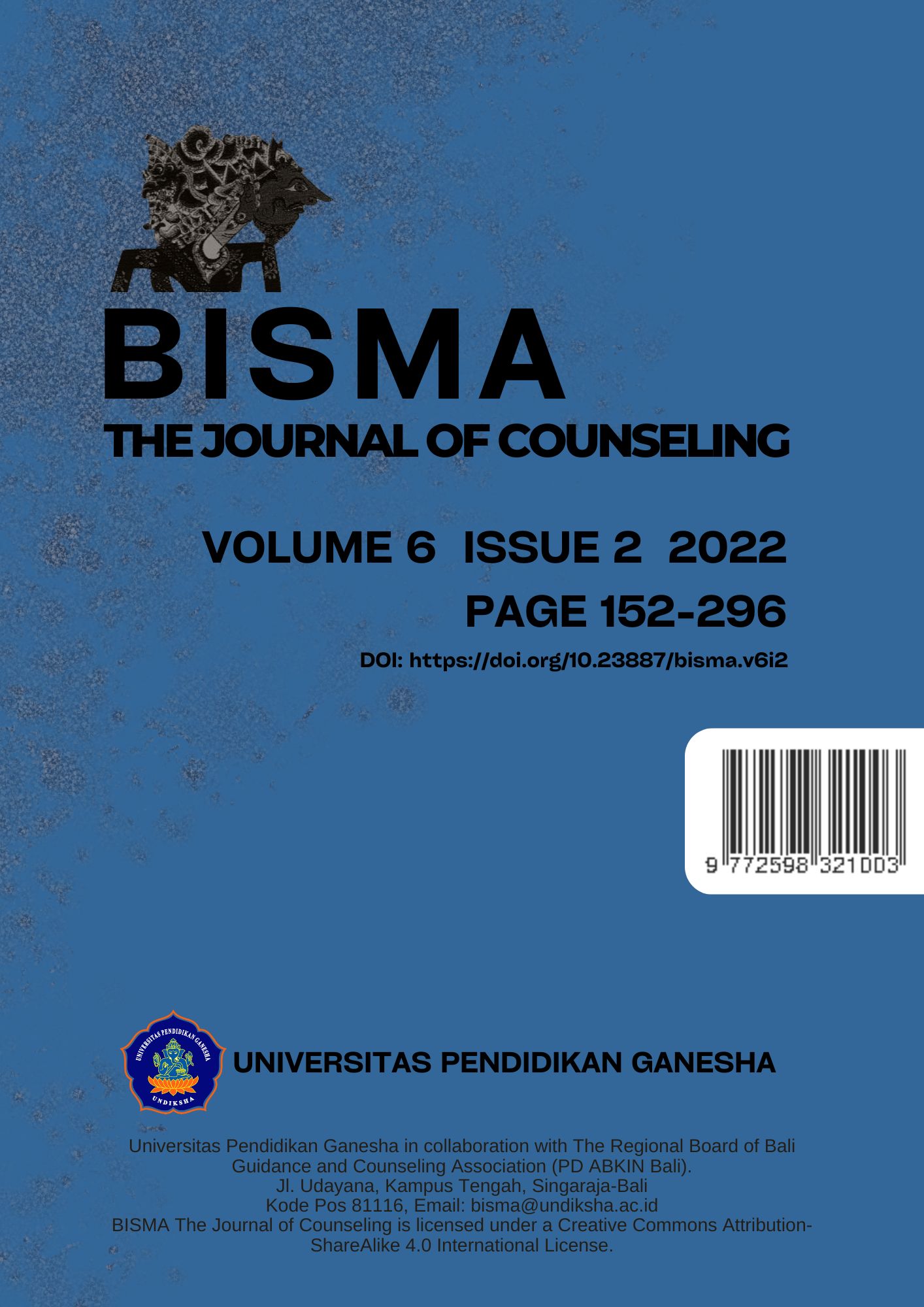Leadership Role Head Schools In Improving Teacher Performance
DOI:
https://doi.org/10.23887/bisma.v6i2.48261Keywords:
Leadership, Teacher Performance, StudentsAbstract
The purpose of this study was to determine how the role of the principal's leadership in improving teacher performance at SMAN 1 Kampar Utara. This research uses qualitative research with descriptive research design. Data collection techniques were carried out by observation, interviews, and documentation. The results of this study indicate that there is a significant role between the principal's leadership in improving teacher performance at SMAN 1 Kampar Utara. There are 6 main roles of leadership in improving performance: 1) Applying a leadership style that is democratic, straightforward and open. 2) Provide time to communicate with teachers, students, and other school members. 3) Emphasize to teachers and all school members to comply with disciplinary norms. 4) Conduct regular and continuous meetings with teachers, school members, and school committees. 5) Guiding and directing teachers in solving problems. 6) Conduct class visits to observe directly learning activities.
References
Abdussamad, Zuhri . (2021). Research Method qualitative . Makassar: Syakir Media Press.
Andriani, S., Kesumawati, N., & Kristiawan, M. (2018). The influence of the transformational leadership and work motivation on teachers performance. International Journal of Scientific & Technology Research, 7(7), 19-29.
Baharun, H. (2018). Improving teacher competence through the madrasa principal's leadership system. At-Tajdid: Journal of Tarbiyah Science , 6 (1), 1-26.
Bužeková, T. (2019). Shamanic Gift In The Global Village: Spiritual Energy And Biomedicine. Slovak Ethnology/Slovensky Narodopis, 67(4).
Dacholfany , M. Ihsan . (2012). Islamic Leadership and Behavior Organization . Lampung: CV. LADUNY ALIFATAMA (Laduny Publisher).
Fitria, H. (2018). The influence of organizational culture and trust through the teacher performance in the private secondary school in Palembang. International Journal of Scientific & Technology Research, 7(7), 82-86.
Hartiwi, H., Kozlova, A. Y., & Masitoh, F. (2020). The effect of certified teachers and principal leadership toward teachers’ performance. International Journal of Educational Review, 2(1), 70-88.
Heli, H. (2021). Elements Of Experience In The Leadership Construct Of Special Education Head Teachers In Malaysia. Turkish Journal of Computer and Mathematics Education (TURCOMAT), 12(11), 5279-5283.
Karalis, T., & Raikou, N. (2020). Teaching at the times of COVID-19: Inferences and implications for higher education pedagogy. International Journal of Academic Research in Business and Social Sciences, 10(5), 479-493.
Lestari, RA, Gistituati, N., Jasrial, J., & Syahril, S. (2022). The Effect of Principal Leadership and School Climate on the Performance of State Elementary School Teachers in Pamenang District, Merangin Regency, Jambi. Journal of Educational Management Materials , 11 (2).
Li, Y., Zhao, Z., Liu, L., Zhou, L., Liu, D., Li, S., ... & Wang, Z. L. (2021). Improved output performance of triboelectric nanogenerator by fast accumulation process of surface charges. Advanced Energy Materials, 11(14), 2100050.
Masoko, FF, Katuuk, DA, Rotty, VN, & Lengkong, JS (2021). The Influence of Leadership Behavior and Compensation on Teacher Performance at North Minahasa Adventist Middle School. Journal of Educational Management Materials , 10 (1), 98-103.
McCormick, B., & Davenport, D. (2020). Shepherd leadership: Wisdom for leaders from Psalm 23. Fortress Press.
Mosque. (2016). Teacher Performance Development . Yogyakarta: Blue Ocean Publisher (IKAPI Member)
Murat, M., Köse, S., & Savaşer, S. (2021). Determination of stress, depression and burnout levels of front‐line nurses during the COVID‐19 pandemic. International journal of mental health nursing, 30(2), 533-543.
Ospina, S. M., Foldy, E. G., Fairhurst, G. T., & Jackson, B. (2020). Collective dimensions of leadership: connecting theory and method. Human Relations, 73(4), 441-463.
Sintani , lelo et al . (2022). Basic Leadership . Cendikia Mulia Mandiri Foundation Publisher
Tang, K. N. (2019). Leadership and Change management. Springer Singapore.
Walean, R., & Koyongian, Y. (2021). Leadership Style As a Behavioral Determinant of Principals in Conducting Instructional Supervision. Journal of Educational Management Materials , 10 (2), 63-69.
Yandrizal, Y., Rifma, R., Syahril, S., Barkara, RS, & Novebri, N. (2021). Principal's Leadership Style in Improving the Quality of Education in Senior High Schools. Journal of Educational Management Materials , 9 (2), 71-75.
Downloads
Published
Issue
Section
License
Copyright (c) 2022 Hasni Julidawati, Lena Nofelia, Nurhizrah Gitituati

This work is licensed under a Creative Commons Attribution 4.0 International License.









